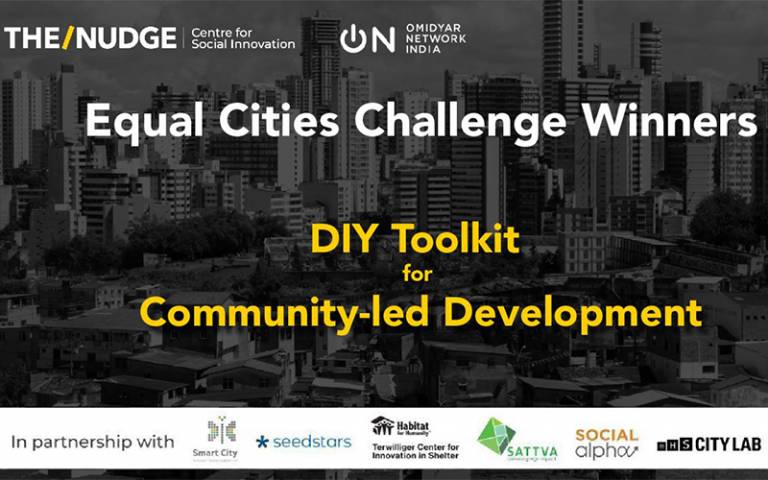DPU student one of the winning teams for the Equal Cities Challenge
9 July 2020
Congratulations to Rohit Lahoti, current student on the MSc Urban Development Planning programme, who was selected as one of five winning teams for the Equal Cities Challenge, by The Nudge-Center for Social Innovation (N/Core).

In India, over 65M people live in urban slums or informal settlements with poor housing quality, inadequate access to safe water and sanitation, overcrowding and insecure residential status. The immediate impact of COVID-19 and the associated lockdown has demonstrated the vulnerability of the urban poor. With rising issues of climate change and the possibility of frequent COVID-19-like pandemics in the World, the urban poor are particularly vulnerable. There is therefore an urgent need for innovations and experiments to make leapfrog improvements in living conditions and food/financial security for the urban poor.
It is from this premise that the Equal Cities Challenge, by The Nudge-Center for Social Innovation (N/Core) invited proposals to pitch transformative, innovative, and feasible solutions to improve the lives of the urban poor.
N/Core foundation selected the team co-led by DPU student Rohit Lahoti with Sayali Marawar were amongst the top five entries (out of 294 submissions) to grant them the funding for the next six months, along with the relevant mentoring. This launchpad will help them to develop their startup idea as they start doing further groundwork on how they plan to pilot, scale up, develop the sustainability model, and many such nuances ranging from creating a social impact to building an organisation.
The core problem that Rohit Lahoti's team chose to focus on is the reduced agency of urban poor communities in imagining and developing their habitats. They will be working towards developing a DIY-Toolkit for community-led development that shall provide the required Technical Assistance and Ecosystem Support that communities can harness to accomplish self-development.
This toolkit will take the form of a knowledge-product and a facilitation-service, with its core focus on ramping-up operationalization of community-led development by leveraging the existing policy provisions, expertise, and success stories. Based on their understanding they have developed so far, the team envisions this toolkit as encompassing:
- Easy access to a consortium of relevant experts.
- Simplified understanding and compilation of requisite policies, laws and regulations.
- Standard operating procedures to help communities act on the policy provisions.
- Existing relevant examples (including international examples) to take inspiration from.
- Easy access to open source platforms, data and sample financial models to facilitate the communities’ planning process.
The final 6-minute pitch delivered by Rohit and Sayali is available here (link).
 Close
Close

